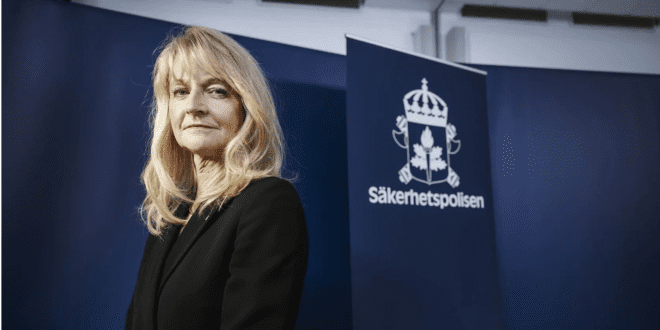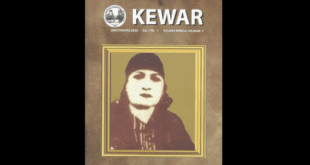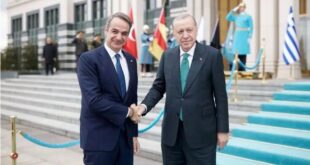Repression of Kurdish political activity at Turkey’s behest is “Kafkaesque” and “does not belong in a modern legal system or a democratic country,” twenty-five lawyers say in open letter.
Political persecution of Kurds in Sweden has “gone off the rails,” twenty-five lawyers in the Nordic country have warned. Members of Sweden’s Kurdish diaspora face “political persecution… with the [Swedish] Security Service at the forefront, since international relations with Turkey have become a more important foreign policy concern,” the legal advocates write in an open letter published on the website ETC.
In their letter, the lawyers highlight the hypocrisy of a situation in which “the Kurds’ political position and activities, for which the same Kurds were initially granted protection in their new home country, have been classified as “terrorism” by the Security Service for some years… the political persecution of Kurds and Kurdish institutions must stop,” they add.
The letter is written to condemn growing Turkish influence on the security policy on a country once known for its relative tolerance and support for exiled Kurdish politicians, journalists and activists.
For eighteen months following Sweden’s attempted accession to NATO, Turkey refused to approve Sweden’s application to join the security alliance, a process where Ankara wields a veto. Rather, the Turkish authorities issued a laundry-list of demands, including access to fighter jet programmes, concessions over EU access and visa-free travel, and the persecution and harassment of Sweden’s Kurdish diaspora as a quid-pro-quo for dropping its veto, provoking public anger in Sweden.
“Turkey is a country that has been condemned several times by the European Court of Human Rights for violations of the Convention,” the lawyers note. “It is also a country that holds thousands of lawyers, journalists and politicians in prison on arbitrary grounds.”
Principal among Turkey’s demands was the extradition of a list of members of the Kurdish community, which had previously found a safe haven in Sweden, to face trial in Turkey. Notably, Turkey initially suggested that a then-member of Sweden’s Parliament, Iranian-born Kurd Amineh Kakabaveh, should be deported to Turkey despite having no legal ties to the country. Following Sweden’s accession to NATO, Kurds have indeed faced heightened criminalisation, deportation, and the imposition of a restrictive new terror law which appears tailored to meet Turkish interests through targeting the country’s Kurdish diaspora.
“The developments we have observed in Sweden in recent years are reprehensible, and makes us think about what future Sweden is heading towards and what legal system we are slowly but surely accepting in a longer perspective,” the lawyers write, warning that policies being used to target the Kurds will later imperil civil society and democratic opposition throughout Turkey.
They draw a comparison with the erosion of rule of law in Turkey, adding: “The situation is again similar to the Turkish legal system where every Kurd who wants to claim his identity is considered a terrorist and a Kurdistan Workers’ Party [PKK] sympathiser… Kurdish organisations have their bank accounts blocked, young Kurdish job seekers do not proceed in the work permit process after security clearance, and lawyers are beginning to be surveilled.”
These repressive measures, which appear to constitute the extension of widely-condemned Turkish policies onto European soil, are “Kafkaesque” and “do not belong in a modern legal system or a democratic country,” the lawyers say. Conversely, they points to a landmark recent court case in Belgium, in which that country’s Court of Cassation upheld a decision indicating that the PKK should not be considered a terror organisation at all, but a legitimate party to an internal conflict. This makes Sweden’s newfound opposition to Kurdish political activity “contradictory,” the lawyers add.
“Only a few years ago, the Kurds were one of the most important actors against the advance of ISIS and were internationally acclaimed,” they conclude. “Instead of suspecting and criminalising Kurds, Sweden should instead support a new peace process between the Kurds and Turkey.”
Photo: Charlotte von Essen, police chief of Säkerhets.
This news was originally published by Medyanews.
 Infowelat Enformasyon Ji Bo Welat
Infowelat Enformasyon Ji Bo Welat




